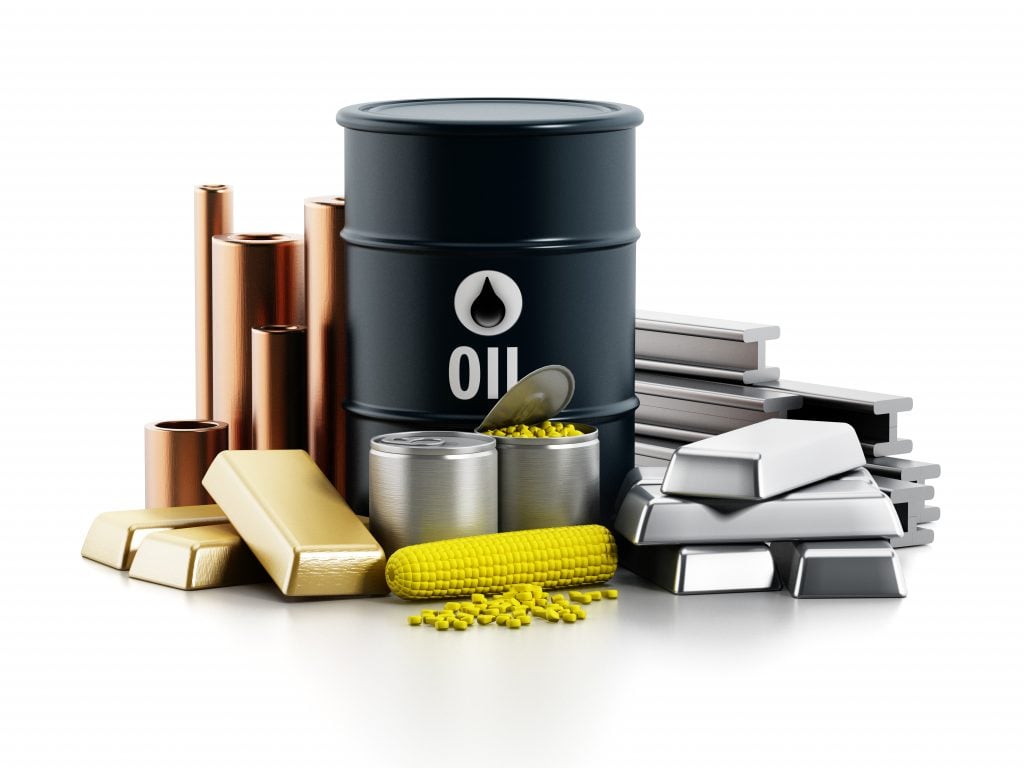
What are commodities?
Commodities are raw materials that can be bought and sold, including physical goods, energy resources, agricultural products, and livestock. Unlike stocks and bonds, commodities are tangible assets whose value can be influenced by factors such as the weather, geopolitical events and broader macroeconomic trends.
Why are commodities important as an asset class?
1.Diversification Benefits – Commodities tend to have a low or negative correlation with traditional asset classes. This means that when stocks are underperforming, commodities might perform well. Diversifying across asset classes helps to reduce the overall risk exposure while potentially enhancing returns.
2.Inflation Hedge- Commodities are among the few asset classes that often gain value during periods of rising inflation. For example, gold and oil have historically been considered reliable hedges during times of economic uncertainty or inflation. As inflation rises, the cost of goods and services increases, often making commodities more valuable.
3.Returns During Market Volatility- Commodities can perform well during periods of market volatility or geopolitical instability. For instance, in times of oil supply shocks or geopolitical tensions in major energy-producing regions, the prices of crude oil and natural gas often spike. Investors exposed to commodities during these times can benefit from such price surges.
How to invest in Commodities
1.Physical Ownership – This involves directly purchasing commodities like gold bars or agricultural produce. However, this may pose challenges for most individual investors due to issues related to storage, insurance and liquidity.
2.Futures Contracts – A more common approach is through commodity futures, where investors agree to buy or sell a commodity at a specific price on a future date. Futures markets are highly liquid but can be risky due to the leverage involved.
3.Exchange- Traded Funds (ETFs) – ETFs offer a convenient way to gain exposure to a broad basket of commodities without needing to trade futures directly. For example, an investor could buy into a gold ETF or an energy- focused ETF, depending on their preferences.
4.Commodities Stocks and Funds – Investors can also gain exposure by investing in companies involved in producing or extracting commodities, such as mining firms or oil companies.
Risks Associated With Commodity Investments
1.Price Volatility – Commodity prices can be highly volatile due to factors such as weather conditions, geopolitical events, and global demand-supply imbalances. This volatility poses a challenge for investors, as it can impact profit margins and lead to unpredictable investment outcomes.
2.Leverage Risk in Futures Trading – Futures contracts often involve leverage, allowing investors to control large amounts of a commodity with a relatively small initial investment. While leverage can amplify gains, it also magnifies losses as investors are tasked with paying interest on the leveraged amount.
3.Geopolitical Risk – Commodities like oil and gas are particularly sensitive to geopolitical tensions. Disruptions in major supply regions can cause sharp price movements. For example, instability in the Middle East has historically resulted in spikes in oil prices, impacting global energy markets.
4.Non-Income-Generating Asset Class – Unlike many other asset classes, commodities do not generate income or yield, such as interest or dividends. Instead, their returns are primarily driven by fluctuations in demand and supply dynamics, making their performance inherently more volatile and dependent on market conditions.
For investors aiming to build resilient and diversified portfolios, commodities can be considered a worthwhile component. Whether through physical holdings, futures contracts, ETFs, or shares of commodity-related companies, exposure to this asset class may offer long-term value and protection against economic uncertainty.
Investing in commodities isn’t just about capitalizing on short-term market trends; it is also about recognizing the long-term value of the raw materials that power economies around the world.
—————————————————————————————————————————————————————————————-
The information contained in this blog is being provided for educational purposes only and does not constitute a recommendation from any Bora Capital Advisors entity to the recipient. Bora Capital Advisors is not providing any financial, economic, legal, investment, accounting, or tax advice through this blog to its recipient. This report reflects the views and opinions of Bora Capital Advisors Ltd, and is provided for information purposes only. Although the information provided in the market review and outlook section is, to the best of our knowledge and belief correct, Bora Capital Advisors Ltd, its directors, employees and related parties accept no liability or responsibility for any loss, damage, claim or expense suffered or incurred by any party as a result of reliance on the information provided and opinions expressed in this report, except as required by law. The portfolio performance data represented in this report represents past performance and does not guarantee future performance or results.




